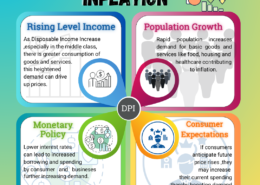Assess the success of the RBI’s communication and forward guidance initiatives in stabilizing inflation expectations and upholding the legitimacy of its monetary policy framework.
How the Budget System Can Contribute to Corruption: Opacity and Lack of Transparency: Complex Budgetary Processes: Beneath the apparently clear and rational system, budgeting may involve a number of susceptible and unclear steps, with little public participation/transparency. This lack of transparenRead more
How the Budget System Can Contribute to Corruption:
Opacity and Lack of Transparency:
Complex Budgetary Processes: Beneath the apparently clear and rational system, budgeting may involve a number of susceptible and unclear steps, with little public participation/transparency. This lack of transparency can create opportunities for corruption, such as:
Misallocation of Funds: Money can be embezzled to give it or use it for other purposes in the best interest of some people.
Inflated Costs: Tenders and contracts can be obtained at exorbitant prices for the award givers and the real prices are paid by the officials in cash difference.
Kickbacks and Bribery: Corruption through bribery and kickbacks ensures that the particular agency is able to receive funds, convenience for budgeting and approving projects.
Limited Public Participation:
Lack of Citizen Input: Deficit participation in the process of formulating its budget leads to lack of accountability and can also leads to the practice of corruption.
Lack of Public Awareness: The public cannot know where their money is being used, or when and where corruption is taking place if they are not informed about the budget.
Weak Oversight Mechanisms:
Inadequate Audits: It means that weak auditing systems may not be able to pick and check cases of corruption hence making them go unreported.
Limited Accountability: Misconduct is likely to be fostered whenever there are no precautions against officials employing public funds for unauthorised purposes.
How the Budget System Can Help Prevent Corruption:
Transparency and Accountability:
Open Budget Initiatives: Budgeting for and with citizens, engagement of citizens in budgetary processes, online access to budgetary paperwork, and citizen feedback forums can help reduce corruption in budget processes.
Independent Audits: Internal auditing is very useful in financial reporting irregularities since the auditing work is done by independent agencies.
Technology-Enabled Solutions:
Digitalization: E-governance of the budget, wherein people use technology to manage their budget such as through control panels, is a better way of managing budgets since it specially eliminates the mechanisms for manual alteration.
Strengthening Institutions:
Independent Regulatory Bodies: Improvement of the functions of independent regulatory agencies might improve the monitoring and implementation of budgetary laws and policies.
Civil Society Engagement: This paper finds that active Civil Society Organization engagement in budget monitoring and advocacy can contribute to the identification and mitigation of corruption risks.


Effectiveness of RBI's Forward Guidance and Communication Strategies The Reserve Bank of India (RBI) employs forward guidance and communication strategies as essential tools for anchoring inflation expectations and maintaining the credibility of its monetary policy framework. Evaluating the effectivRead more
Effectiveness of RBI’s Forward Guidance and Communication Strategies
The Reserve Bank of India (RBI) employs forward guidance and communication strategies as essential tools for anchoring inflation expectations and maintaining the credibility of its monetary policy framework. Evaluating the effectiveness of these strategies involves examining recent actions, communication techniques, and their impact on inflation expectations and policy credibility.
1. Forward Guidance Mechanism
2. Communication Strategies
3. Anchoring Inflation Expectations
4. Credibility of Monetary Policy Framework
5. Impact on Financial Markets and Economic Behavior
Conclusion
The RBI’s forward guidance and communication strategies have been effective in anchoring inflation expectations and maintaining the credibility of its monetary policy framework. Recent examples illustrate the RBI’s efforts to manage market expectations and provide clarity on its policy stance. However, maintaining this effectiveness requires ongoing consistency in communication, timely policy responses, and addressing any emerging challenges to uphold the central bank’s credibility and achieve its inflation and economic stability objectives.
See less